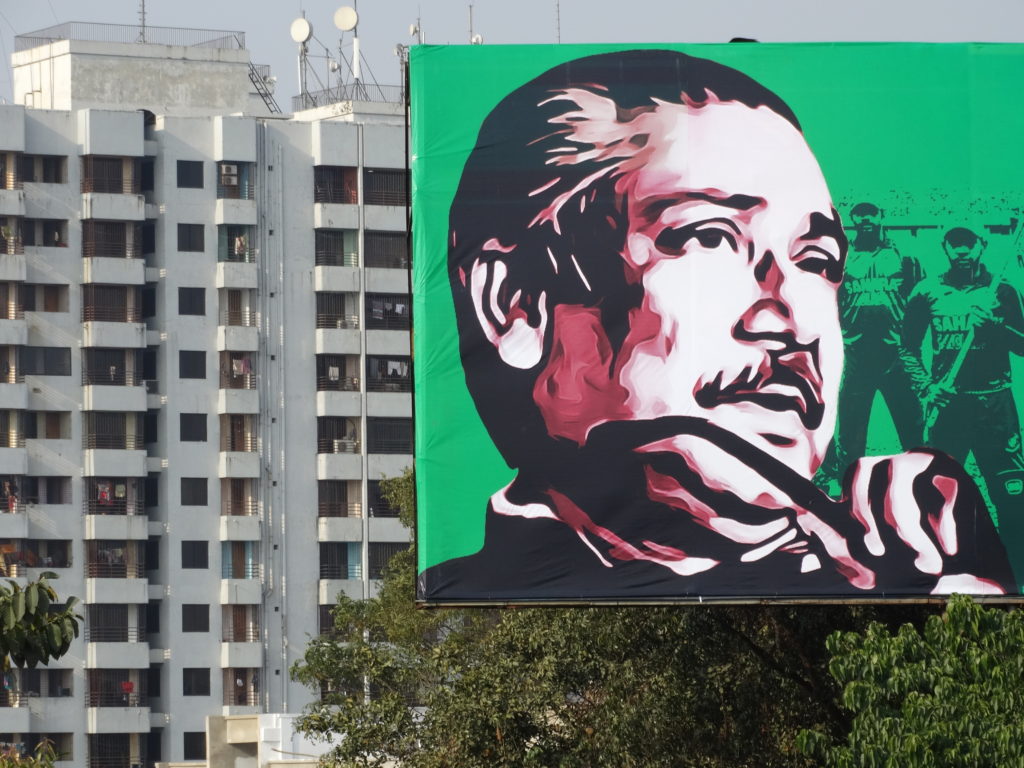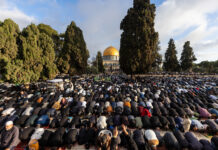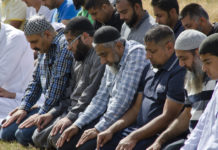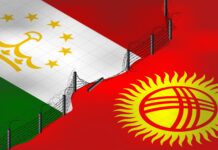Shaykh Delwar Hossain Sayeedi, the vice president of Bangladesh’s opposition Jamaat-e-Islami party and a former member of parliament, has died whilst in jail.
Sayedee, 83, was a prominent Islamic scholar and speaker in Bangladesh, and was taken to Bangabandhu Sheikh Mujib Medical University in Dhaka on Sunday afternoon after suffering a heart attack. He passed away yesterday and his subsequent janazah was attended by huge crowds.
Shaykh Sayeedi had been in prison for 13 years and was facing several health complications. He passed away at hospital while undergoing treatment, Brig. Gen. Md Rezaur Rahman, the director of BSMMU, confirmed to the media.
Shortly after, thousands of Jamaat supporters began gathering at the hospital and chanting slogans against the government for keeping him in prison in “false” cases and due to “motivated” court verdicts.
They chanted “Allahu Akbar,” with large numbers of police deployed. “We won’t let the blood of Sayeedi go in vain,” supporters shouted, with many blaming the government of Prime Minister Sheikh Hasina.
Jamaat-e-Islami said in a condolence message that “a grave injustice has been done to him by imprisoning him for life in a false and fabricated case.”
They added in a statement: “One of the leaders of the world Islamic movement, internationally renowned mufassir Quran, famous alim deen, Bangladesh Jamaat Islami naib amir, and international renowned Islamic scholar and multiple author Allama Delawar Hossain Sayeedi Rahimahullah ended his world tour tonight at 8pm in response to the call of great the Rabbi Karim… We belong to Allah and to Him we shall return…
Subscribe to our newsletter and stay updated on the latest news and updates from around the Muslim world!
“This great brother has struggled all his life to establish Islam in the court of the world. Despite torture, he did not move away from his ideals and his movement. His death is painful for the world’s Islamic movement. May Allah Subhanahu Wa Ta’ala forgive this slave, have mercy on him and honour him and grant him the highest ranks in Jannatul Firdaus.”
Shaykh Sayeedi had been serving a life sentence for alleged crimes against humanity during the Bangladesh Independence War.
His party, however, considered the trial controversial and regarded it as part of a political attempt to try party leaders.
In 2013, a local court called the International Crimes Tribunal sentenced Sayeedi to death for crimes against humanity. At least 78 people died in clashes with police and other law enforcement agencies across the country in an immediate reaction to the court verdict.
The country’s Supreme Court in 2014 reduced the punishment to life imprisonment, however.
The crimes tribunal, set up in 2009, has been criticised by global rights groups for not following fair trial standards. Since then, it has delivered verdicts against over 130 people in over 50 cases.

Bangladesh gained independence from Pakistan in 1971 after a bloody war that lasted for months. The Jamaat-e-Islami party has been criticised for its alleged collaboration with the Pakistani army during the war.
The war culminated in the secession of East Pakistan from West Pakistan, resulting in the creation of the independent nation of Bangladesh. Rooted in decades of political, economic, and cultural disparities between the two wings of Pakistan, tensions reached a breaking point.
The Awami League, led by Sheikh Mujibur Rahman, emerged as the political force championing the rights and autonomy of East Pakistan. The 1970 general elections saw the Awami League win a landslide victory in East Pakistan, gaining a majority in the National Assembly. However, the central government’s reluctance to transfer power fueled widespread frustration.
In response, on March 25, 1971, the Pakistani military launched Operation Searchlight to suppress growing demands for autonomy. This marked the beginning of the conflict.
The Mukti Bahini, a Bengali guerrilla force, formed to fight the Pakistani military. As violence escalated, millions of East Pakistani refugees fled to India. In December 1971, India intervened militarily in support of the Mukti Bahini, escalating the conflict into a full-scale war. A joint Indian and Mukti Bahini offensive led to the defeat of the Pakistani military.
The war resulted in a significant loss of life and widespread human rights abuses, with estimates of casualties ranging from hundreds of thousands to millions.
Jamaat-e-Islami opposed the country’s independence from Pakistan during the war. Many of its leaders were aligned with the Pakistani military and were accused of collaborating with them in committing atrocities against Bengali nationalists and pro-independence activists.
SOURCE: AA and 5Pillars























